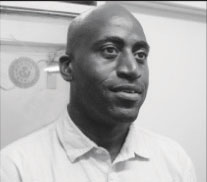
WITH the speed of hurricane winds, the infamous Charlie Charlie Challenge has captivated social media followers, and taken some Caribbean societies by storm. We observed the backlash in school circles, where traumatised students experienced after-effects which affected their state of mind, and their learning. Unsurprisingly, authorities responded with a ban on the practice being played in schools. This viral internet phenomenon has raised many questions (not least about spirits and oracles), provoking priests and others to deterr other would-be participants of that challenge.
Part of what makes this challenge so popular, leading to the irresistible impulse to interact with supposed spirits, is our fascination and search for knowledge. But is it wise to gain information from unknown sources? A more difficult question: how do you verify the information received from the netherworld — or unknown sources — that are unseen or even unholy?
Do you think this sounds farfetched? Take for example, a search on your favourite internet search engine. You “ask” a question, and if you are “feeling lucky,” there is an answer presented to you.
Many many times, we place our faith in the information received after a query without questioning whether the output is correct. This is a simple example worth considering. The challenge when you interact with a search engine, is having the wisdom to decide what constitutes a believable, trustworthy, and authoritative source of information. In a business environment, the challenge could be to recognise that your data might be out-of-date.
Have you ever phoned up a business place, and inquired into your account, only to be told that there is “no record” matching your information?
On a few occasions when I have bothered to challenge the information received from a business place, the response of the clerk is predictable and even amusing. How dare I? Of course the information is beyond reproach! Eventually, they change their tune when they “discover” that their information was out of date, and therefore, questionable.
If we recognise that young minds might be drawn to challenges thrown out by others, maybe we should also learn from their mistakes. Like them, we need to know the following:
* What is proven by responding to a challenge;
* What makes an answer, or a source, trustworthy;
* What questions to ask;
* Whom to ask the questions.
The Charlie Charlie challenge has highlighted several things that we take for granted, and proves the speed and reach of messages that appear via the Internet. Let us not be blinded to the real questions that should be asked of our data, our sources, and of ourselves.
Thanks for you continuing views on these articles. Contact the author at: www.datashore.net or via The VOICE.
About the Author
Dr.Lyndell St. Ville is an ICT Consultant, and Chief Technology Officer of Datashore, based in Saint Lucia.
He areas of interest include: systems analysis and design, programming, databases, and policy development.
This article should be considered as general advice. You should consult your service provider before relying on external advice.





![Simón Bolívar - Liberator of the Americas [Photo credit: Venezuelan Embassy]](https://thevoiceslu.com/wp-content/uploads/2025/12/Simon-Bolivar-feat-2-380x250.jpg)



